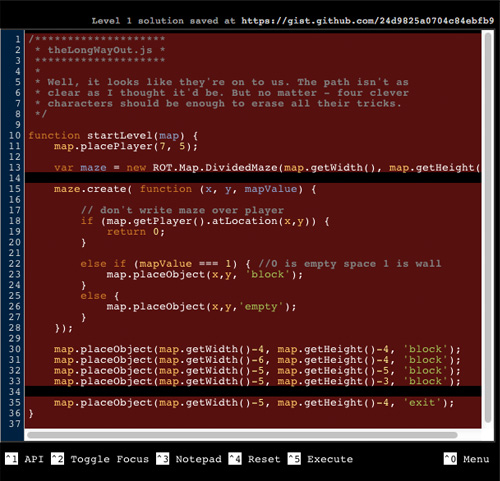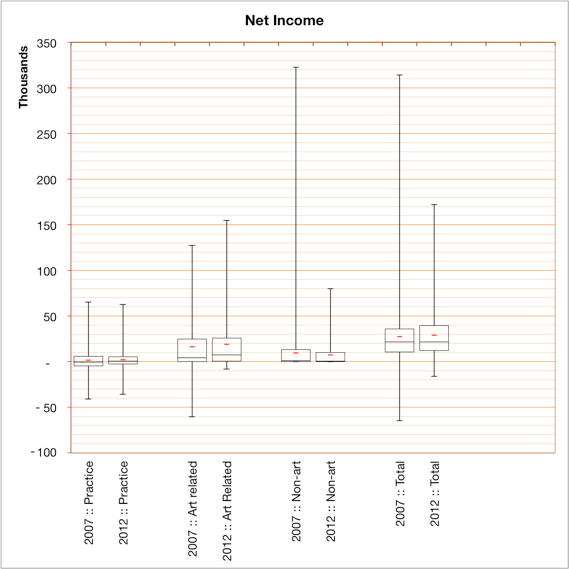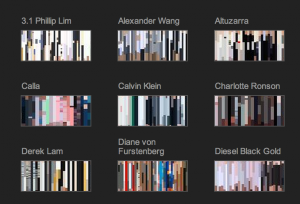From Alex I discovered the serious game Untrusted by Alex Nisnevich. This puzzle game asks you to edit Javascript in order to solve puzzles as a way of learning to think like a programmer. You can read about the game at Games with Purpose – a site that is gathering serious games.
A World Digital Library Is Coming True!
Robert Darnton has a great essay in The New York Review of Books titled, A World Digital Library Is Coming True! This essay asks about publication and the public interest. He mentions how expensive some journals are getting and how that means that knowledge paid for by the public (through support for research) becomes inaccessible to the very same public which might benefit from the research.
In the US this trend has been counteracted by initiatives to legislate that publicly funded research be made available through some open access venue like PubMed Central. Needless to say lobbyists are fighting such mandates like the Fair Access to Science and Technology Research Act (FASTR).
Darnton concludes that “In the long run, journals can be sustained only through a transformation of the economic basis of academic publishing.” He argues for “flipping” the costs and charging processing fees to those who want to publish.
By creating open-access journals, a flipped system directly benefits the public. Anyone can consult the research free of charge online, and libraries are liberated from the spiraling costs of subscriptions. Of course, the publication expenses do not evaporate miraculously, but they are greatly reduced, especially for nonprofit journals, which do not need to satisfy shareholders. The processing fees, which can run to a thousand dollars or more, depending on the complexities of the text and the process of peer review, can be covered in various ways. They are often included in research grants to scientists, and they are increasingly financed by the author’s university or a group of universities.
While I agree on the need to focus on the public good, I worry that “flipping” will limit who gets published. In STEM fields where most research is funded one can build the cost of processing fees into the funding, but in the humanities where much research is not funded, many colleagues will have to pay out of pocket to get published. Darnton mentions how at Harvard (his institution) they have a program that subsidizes processing fees … they would, and therein lies the problem. Those at wealthy institutions will now have an advantage in that they can afford to publish in an environment where publishers need processing fees while those not subsidized (whether private scholars, alternative academics, or instructors) will have to decide if they really can afford to. Creating an economy where it is not the best ideas that get published but those of an elite caste is not a recipe for the public good.
I imagine Darnton recognizes the need for solutions other than processing fees and, in fact, he goes on to talk about the Digital Public Library of America and OpenEdition Books as initiatives that are making monographs available online for free.
I suspect that what will work in the humanities is finding funding for the editorial and publishing functions of journals as a whole rather than individual articles. We have a number of journals in the digital humanities like Digital Humanities Quarterly where the costs of editing and publishing are borne by individuals like Julian Flanders who have made it a labor of love, their universities that support them, and our scholarly association that provides technical support and some funding. DHQ doesn’t charge processing fees which means that all sorts of people who don’t have access to subsidies can be heard. It would be interesting to poll the authors published and see how many have access to processing fee subsidies. It is bad enough that our conferences are expensive to attend, lets not skew the published record.
Which brings me back to the public good. Darnton ends his essay writing about how the DPLA is networking all sorts of collections together. It is not just providing information as a good, but bringing together smaller collections from public libraries and universities. This is one of the possibilities of the internet – that distributed resources can be networked into greater goods rather than having to be centralized. The DPLA doesn’t need to be THE PUBLIC LIBRARY that replaces all libraries the way Amazon is pushing out book stores. The OpenEdition project goes further and offers infrastructure for publishing knowledge to keep costs down for everyone. A combination of centrally supported infrastructure that is used by editors that get local support (and credit) will make more of a difference than processing fees, be more equitable, and do more for public participation, which is a good too.
Waging Culture: Comparison of 2007 to 2012
The agYU (Art Gallery of York University) has posted a summary comparison of how much artists made in 2007 and in 2012. See Out There – Waging Culture: Snapshot comparison of 2007 to 2012 results. There hasn’t been a lot of change in the bottom line for artists (they still don’t make much.) What is depressing is how little the average arts practicioner makes from their practice. The mean for 2012 is $2,300 a year (after expenses.) Most artists are surviving from art-related income. Even then, the 2012 mean for practice and art-related income is $21,490.
In a different blog entry on Methodology in Short they talk about the purpose of the Waging Culture survey,
There are some significant issues with using Census data in researching visual artists. As the Census accounts only for the “main” occupation of an individual, those artists who hold day-jobs are not counted as artists, and thus a significant set of artists simply disappear into the need for simplicity in defining occupation. In addition, there is no breakdown of the various source of incomes for those who are identified as artists. In both instances, these lapses can and do lead to significant misunderstandings of the socio-economic health of artists. For example, while the median income of artists in the 2007 study was $20,000, this included income from all sources. Income from studio practice alone, however, was negative $556.
International Ethics Roundtable 2014
Last week I was at a great little conference, the International Ethics Roundtable 2014. My conference notes are at Information Ethics And Global Citizenship. I gave a paper titled, “Watching Olympia”, about the CSEC slides that showed the Olympia system developed by the Communications Security Establishment Canada. You can see the blog entry that my paper came from here.
Research Data Management Week
This week the University of Alberta is running a Research Data Management Week. They have sessions throughout the week. I will be presenting on “Weaving Data Management into Your Research.” The need for discussions around research data management is described on the web page:
New norms and practices are developing around the management of research data. Canada’s research councils are discussing the introduction of data management plans within their application processes. The University of Alberta’s Research Policy now addresses the stewardship of research records, with an emphasis on the long-term preservation of data. An increasing number of scholarly journals are requiring authors to provide access to the data behind their submissions for publication. Data repositories are being established in domains and institutions to support the sharing and preservation of data. The series of talks and workshops that have been organized will help you better prepare for this emerging global research data ecosystem.
The University now has language in the Research Policy that the University will:
Ensure that principles of stewardship are applied to research records, protecting the integrity of the assets.
The Research Records Stewardship Guidance Procedure then identifies concrete responsibilities of researchers.
These policies and the larger issue of information stewardship have become important to infrastructure. See my blog entry about the TC3+ document on Capitalizing on Big Data.
The DH Experience Game on Vimeo
We have put up a video of the The DH Experience Game on Vimeo in the INKE Vimeo channel.
John Montague and Luciano Frizzera have designed a cool game that allows people to play at collaboratively completing digital humanities projects. We are now working with GO::DH to make the centers and projects real ones from around the world.
cyoa
cyoa is a great essay/visualization/animation about Choose Your Own Adventure books. There are visualizations of the choices and some great animations of the flow of choices.
The whole essay/site is beautifully designed (and it has a colophon.) It is gesture of love towards Choose Your Own Adventures.
Fragmented Memory | Phillip Stearns
From Elijah Meeks’ hackathon at the Texas Digital Humanities Conference I learned about Fragmented Memory by Phillip Stearns. This is a project that takes binary data and then turns it into weaving instructions using Processing. Here is one of the large tapestries woven (and available for sale.)
If you can’t afford a $15,000 tapestry, there are also cheaper blankets here.
I’ve just put them on my Christmas list (which I can never find in time.)
1st Inaugural Texas Digital Humanities Conference
I’m here at the 1st Inaugural Texas Digital Humanities Conference/a> at the University of Houston and keeping my conference notes here. One of the threads of the conference is network analysis and the other is collaboration. I stuck to the network stream and have been swimming in interesting visual ideas and concepts.
Front Row to Fashion Week – NYTimes.com
The New York Times has an interesting way of visualizing fashion that you can see in their article Front Row to Fashion Week – Interactive Feature. They have abstracted the colour hues to create small swatches of different designers who showed at the New York Fashion Week. These “sparklines” or sparkboxes are an interesting way to compare the shows by designers.




